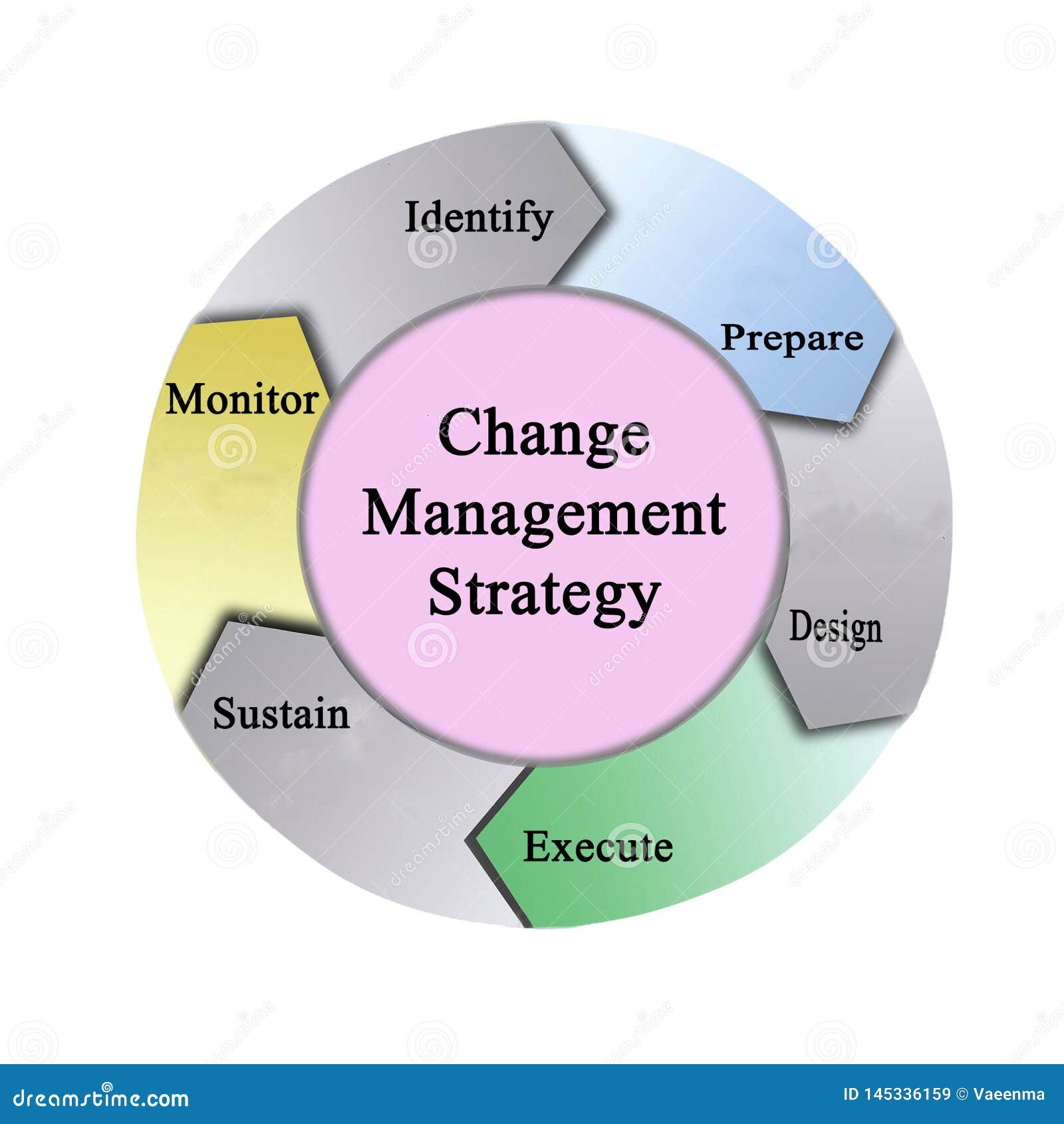Change management is a crucial discipline that helps organizations navigate the complexities of transitions and transformations in today’s ever-evolving business landscape. Embracing change is not just a buzzword; it is an essential skill for personal development and organizational success. According to a Harvard study, understanding how to manage change effectively can significantly enhance our ability to adapt and thrive amidst uncertainties. Intentional change is key, and it involves adopting proactive strategies that enhance self-improvement, enabling individuals and teams to respond positively to challenges. By learning the principles of change management, we can cultivate resilience and a growth mindset, ultimately leading to a more fulfilling and successful life.
Exploring the dynamics of organizational transformation often involves delving into alternative terms that underscore the nuances of the process. Transition management and organizational change are pivotal concepts in understanding how entities evolve and adapt to new environments. Flexibility and the capacity to pivot in response to market demands are essential traits that underpin successful change initiatives. As we examine these topics, it becomes clear that adaptability is not merely a reactive endeavor but an intentional pursuit that aligns with personal aspirations and broader organizational goals. Understanding these alternative frameworks not only strengthens our comprehension of change but also fosters a mindset geared towards perpetual growth and innovation.
Understanding the Dynamics of Change Management
Change management is a crucial aspect in both personal and professional growth. As highlighted by Robert Waldinger, resisting change often leads to increased suffering, emphasizing the necessity of embracing change rather than shunning it. Successful change management involves recognizing the inevitability of change and methodically addressing the challenges it presents. In a business context, understanding employee responses to change can improve morale and productivity, leading to a more agile organization. The theories surrounding change management also incorporate the idea of continuous personal development, suggesting that individuals who remain receptive to change tend to experience superior outcomes.
A Harvard study shows that effective change management not only cultivates resilience in individuals but also prompts self-improvement by allowing people to engage in intentional change. Personal development and a structured approach to change can lead to improved psychological flexibility, making people more adept at navigating uncertainty. Furthermore, change management can significantly enhance teamwork, collaboration, and overall organizational culture by fostering a shared mindset of adaptability. Incorporating tools to facilitate effective change management contributes to a healthier, more innovative environment.
Embracing Change for Personal Development
Embracing change is a fundamental component of personal development, as discussed in the podcast. Many individuals view change with apprehension, often fearing the unknown outcomes it could bring. However, studies suggest that those who actively engage with change are more likely to achieve personal growth. By stepping outside of their comfort zones, people can confront their biases and expand their worldviews, ultimately fostering a more nuanced understanding of their self-identity and capabilities. Embracing change encourages a positive feedback loop: the more we adapt, the more resilient we become.
Additionally, individuals who embrace change often report heightened levels of satisfaction in their lives. Intentional change, guided by self-awareness and a desire for improvement, aligns closely with the broader goal of self-betterment. It’s essential to recognize that while discomfort may arise from change, it typically paves the way for transformative experiences. Personal development is not only about achieving goals but also encompasses the journey of learning and emotional evolution along the way.
The Role of Intentional Change in Self-Improvement
Intentional change serves as a powerful catalyst for self-improvement—a recurring theme emphasized throughout the discussions. Understanding how to manage change deliberately can empower individuals to take charge of their lives, setting meaningful goals and striving for ongoing personal milestones. According to the Harvard study, acknowledging the capacity for self-growth encourages individuals to break free from limiting beliefs, thus engendering greater self-efficacy. When individuals set clear intentions and embrace the process of change, they are better equipped to navigate challenges and harness their innate potential.
Moreover, intentional change aligns individual goals with broader social change, allowing individuals to contribute to movements for equality, sustainability, and social justice. Aligning personal aspirations with collective objectives can amplify the impact of self-improvement efforts and foster a sense of purpose within changing societal landscapes. This synergy between personal and societal change emphasizes the importance of context in self-improvement journeys, where adapting to external changes often propels internal growth.
Lessons from Harvard Studies on Change and Happiness
The findings from the Harvard Study on Adult Development shed light on the relationship between change and happiness. These studies affirm that the ability to adapt and embrace change plays a pivotal role in overall well-being. Notably, individuals who are open to change are likely to exhibit higher levels of life satisfaction, showcasing how flexibility in personal development enhances happiness. Addressing the common misconception that change is inherently negative, it’s essential to recognize that positive transformations often stem from confronting discomfort and uncertainty.
In examining successful change stories from participants in the study, we find a common thread of resilience and adaptation. Challenges faced during significant life transitions, such as career shifts or personal losses, often catalyze growth and renewed purpose. Embracing the lessons from these life experiences allows individuals to cultivate a deeper appreciation for the transformative power of change, reinforcing the notion that through intentional action, one’s happiness and fulfillment can bloom even in the face of adversity.
Overcoming Resistance to Change and Disillusionment
Resistance to change frequently stems from disillusionment, an area often overlooked in discussions surrounding personal development. Individuals might cling to familiar patterns as a protective mechanism against fears and uncertainties. This resistance can prevent profound personal growth and ultimately lead to feelings of stagnation. Encouragingly, experts suggest that reframing our outlook on change can help manage disillusionment, guiding us toward more constructive interpretations of our experiences.
A proactive approach to overcoming resistance involves leveraging current support networks and embracing external resources, such as therapy or community engagement. Transitioning from a mindset of fear towards one of curiosity can also diminish the negative impacts associated with disillusionment. Engaging in conversations about change and seeking feedback from trusted individuals may create an environment where self-exploration flourishes, leading to personal breakthroughs that were previously constrained by resistance.
Navigating Change in a Rapidly Evolving World
In our fast-paced world, navigating change becomes increasingly complex. The constant influx of information and societal shifts can induce a sense of overwhelm. However, the ability to adapt to these changes determines the extent of personal growth. Maintaining a development-oriented mindset, especially during tumultuous times, can set individuals apart as they learn to thrive amidst uncertainty. By anticipating and preparing for potential changes, individuals are better equipped to face life’s challenges head-on.
Furthermore, the discussions underscore the necessity of fostering communities that champion resilience to support individuals as they navigate change. Building connections with like-minded individuals or professionals can establish a safety net that promotes adaptability and reassurance. Creating spaces for dialogue around change can provoke thought and encourage action, allowing each individual to fortify their capacity for self-improvement and effective change management.
The Impact of Implicit Bias on Change Perception
Implicit bias significantly influences how individuals perceive change and their willingness to undergo transformation. Research indicates that deeply ingrained biases shape our responses to varying life circumstances, ultimately determining whether we embrace or resist change. Understanding bias is essential for fostering personal development, as acknowledging these hidden preferences can facilitate more intentional decision-making processes regarding change. The insights from Harvard’s research highlight the importance of addressing implicit attitudes to promote a healthier relationship with change.
Additionally, recognizing implicit biases can serve as a springboard for broader discussions about societal change. As individuals confront their biases, they may become more equipped to engage with evolving social norms and values. This holistic approach to self-improvement emphasizes the importance of self-awareness in navigating personal growth. Without acknowledging the roles of implicit biases, individuals risk remaining stagnant, ill-prepared for the changes life invariably presents.
Fostering a Culture of Change in Organizations
Creating a culture that embraces change within organizations is vital for ongoing success. Change champions within the workplace foster environments that prioritize adaptability and learning, encouraging employees to view challenges as opportunities for growth. This approach aligns with the principles of change management discussed in this content, whereby effective communication and leadership are essential in supporting transitions. Incorporating training and development initiatives can prepare the workforce to navigate change proactively rather than reactively.
Moreover, an organizational culture that values growth leads to increased employee morale and retention rates. When team members feel empowered to pursue personal development, they inherently contribute to the organization’s overall success. A strong culture of change cultivates innovation and creativity, fostering resilience against external pressures. As organizations invest in nurturing this environment, they can better equip their teams to tackle the uncertainties of the future.
The Personal Journey of Adaptation and Change
The personal journey of adaptation and change is often fraught with challenges, yet it remains a significant aspect of self-discovery. As individuals navigate through life’s inevitable transitions—be it career shifts, relationship changes, or personal awakenings—the journey itself can illuminate hidden aspects of their character. Embracing this process provides invaluable insights that contribute to deeper self-acceptance and understanding. In realizing that personal change is a continuous journey, individuals can cultivate resilience and adaptability, ultimately enriching their lives.
Additionally, personal stories of change often inspire others and serve as powerful narratives for communal growth. Sharing experiences can build bridges among individuals, facilitating empathy and support networks that further enhance the journey of self-improvement. Such dialogues affirm that while the path of change may be uncertain and sometimes uncomfortable, it is a shared human experience that fosters connection and collective growth within society.
Frequently Asked Questions
What is change management and why is it important for personal development?
Change management refers to the structured approach to transitioning individuals, teams, and organizations from a current state to a desired future state. It is essential for personal development because it helps individuals embrace change effectively, enhancing their adaptability and resilience in various life situations.
How can one embrace change as part of an intentional change process?
Embracing change involves accepting new situations or challenges with an open mindset. Intentional change requires setting specific goals, being proactive in seeking opportunities for growth, and reflecting on past experiences to guide future decisions, aiding in personal development.
What insights does the Harvard Study on Adult Development provide about change?
The Harvard Study on Adult Development illustrates that change is a constant and inevitable aspect of life. It shows that individuals can alter their trajectories and improve their well-being at any life stage, emphasizing the importance of embracing change for self-improvement.
How does the concept of disillusionment relate to change management?
Disillusionment can influence change management by motivating individuals to reassess their goals and strategies. Accepting the reality of unmet expectations can lead to intentional change, fostering personal growth and resilience rather than bitterness.
What are the psychological factors that influence how people respond to change?
Psychological factors such as individual temperament, past experiences, and implicit biases play a critical role in how people respond to change. Some may inherently resist change due to fear or discomfort, while others thrive on new experiences, impacting their journey of personal development.
How can one navigate negative experiences through intentional change?
Navigating negative experiences involves recognizing the impact of such events on one’s emotions and behaviors. Intentional change can include seeking support, developing coping strategies, and engaging in self-reflection to transform adversity into opportunities for self-improvement.
What are some effective strategies for fostering a culture of embracing change in organizations?
Fostering a culture of embracing change in organizations can be achieved through clear communication, leadership support, employee engagement, and ongoing training. Encouraging a growth mindset will help individuals see change as a pathway to development rather than a threat.
Why is self-improvement crucial in the context of change management?
Self-improvement is crucial in change management because it equips individuals with the skills and resilience needed to adapt to new circumstances. By focusing on personal growth, individuals can better navigate changes and enhance their overall quality of life.
What role does resilience play in handling change?
Resilience plays a pivotal role in handling change as it enables individuals to bounce back from setbacks, maintain a positive outlook, and adapt effectively to new challenges. Cultivating resilience is key to embracing change and achieving personal development.
How can embracing change lead to better relationships and overall happiness?
Embracing change can lead to better relationships and overall happiness by fostering open-mindedness and adaptability in social interactions. Individuals who accept change are often more empathetic and willing to grow in their connections with others, enhancing their well-being.
| Key Concept | Description |
|---|---|
| Resistance to Change | Embracing change alleviates suffering; resisting it leads to discomfort. |
| Psychological Make-up | Individual temperament influences openness to change; some are more inclined to resist while others adapt well. |
| Personal Narratives | Our self-narratives can affect our perception of change; we often see ourselves as unchanging. |
| Disillusionment Effects | Disillusionment can evoke bitter reactions in some and revolutionary understanding in others. |
| Cultural Perspectives | Different cultures have varying attitudes toward change, often influenced by societal norms. |
| Change and Growth | Change can be beneficial, leading to personal growth and improved relationships. |
Summary
Change management is essential in navigating the complexities of our lives. Embracing change leads to personal growth and resilience, allowing us to adapt to new circumstances and challenges. As discussed by experts, understanding our psychological makeup, addressing disillusionment, and acknowledging cultural biases towards change can empower us to accept and thrive in our evolving world. The journey of change management is not only about coping with transitions but also about recognizing the opportunities they present for self-improvement and life fulfillment.



